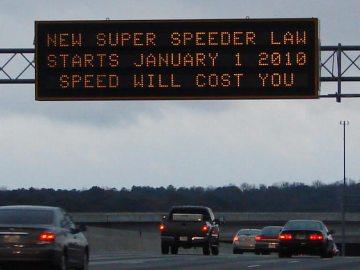
Section Branding
Header Content
Fees Dash Revenue Hopes
Primary Content

Georgia budget writers expected new fees to generate millions more dollars than they're actually generating.
That's the conclusion of a review of state data.
Lawmakers have enacted new fees on everything from hospitals and lobbyists to how much it costs to copy documents in court.
The fees are coming in well below initial estimates.
Alan Essig of the Georgia Budget and Policy Institute says, new state fees rarely live up to how much state officials originally think they'll bring in.
"It's just not easy to get that first year, first estimate correct," Essig says.
So-called super-speeder fines are the biggest example.
An extra $200 fine tacked onto tickets of the state's most dangerous speed violators was expected to generate $23 million.
Instead, it's generating less than half that.
Budget writers didn't anticipate that the fees would be lowered by traffic courts.
Another example is an increase in fees on making copies of court documents.
"People aren't making as many copies of things," Essig says. "They're adjusting to it. And that just wasn't projected right."
The lower fees are one reason Governor Nathan Deal recently lowered his budget's revenue projections.
Tags: Super Speeder, Nathan Deal, extra fees, Alan Essig, fees, Georgia Budget and Policy Institute, super speeders, Georgia budget, state Rep. Jim Cole, Jim Cole, GPB News, super speeder law, Republican Representative Jim Cole, Republican Jim Cole, Georgia Budget & Policy Institute, Georgia budget 2011, 2011 state budget, court fees, 2011 budget, Governor Nathan Deal
Bottom Content

